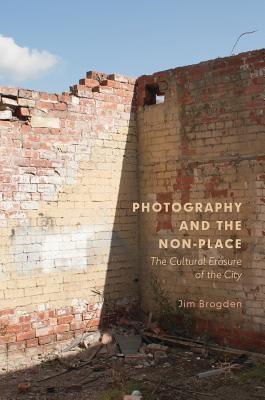
- We will send in 10–14 business days.
- Author: Jim Brogden
- Publisher: Palgrave Macmillan
- Year: 2019
- ISBN-10: 3030039188
- ISBN-13: 9783030039189
- Format: 14.8 x 21 x 2.1 cm, kieti viršeliai
- Language: English
- SAVE -10% with code: EXTRA
Reviews
Description
This book presents a critical and aesthetic defence of "non-place" as an act of cultural reclamation. Through the restorative properties of photography, it re-conceptualises the cultural significance of non-place. The non-place is often referred to as "wasteland", and is usually avoided. The sites investigated in this book are located where access and ownership are often ambiguous or in dispute; they are places of cultural forgetting. Drawing on the author's own photographic research-led practice, as well as material from photographers such as Ed Ruscha, Joel Sternfeld and Richard Misrach, this study employs a deliberately allusive intertexuality to offer a unique insight into the contested notions surrounding landscape representation. Ultimately, it argues that the non-place has the potential to reveal a version of England that raises questions about identity, loss, memory, landscape valorisation, and, perhaps most importantly, how we are to arrive at a more meaningful place.
EXTRA 10 % discount with code: EXTRA
The promotion ends in 23d.05:27:05
The discount code is valid when purchasing from 10 €. Discounts do not stack.
- Author: Jim Brogden
- Publisher: Palgrave Macmillan
- Year: 2019
- ISBN-10: 3030039188
- ISBN-13: 9783030039189
- Format: 14.8 x 21 x 2.1 cm, kieti viršeliai
- Language: English English
This book presents a critical and aesthetic defence of "non-place" as an act of cultural reclamation. Through the restorative properties of photography, it re-conceptualises the cultural significance of non-place. The non-place is often referred to as "wasteland", and is usually avoided. The sites investigated in this book are located where access and ownership are often ambiguous or in dispute; they are places of cultural forgetting. Drawing on the author's own photographic research-led practice, as well as material from photographers such as Ed Ruscha, Joel Sternfeld and Richard Misrach, this study employs a deliberately allusive intertexuality to offer a unique insight into the contested notions surrounding landscape representation. Ultimately, it argues that the non-place has the potential to reveal a version of England that raises questions about identity, loss, memory, landscape valorisation, and, perhaps most importantly, how we are to arrive at a more meaningful place.


Reviews